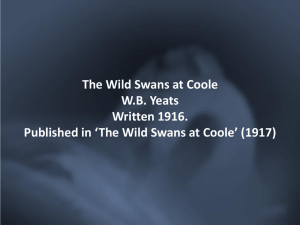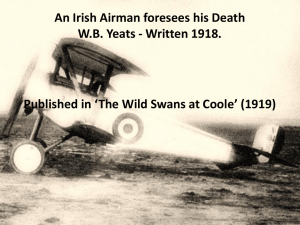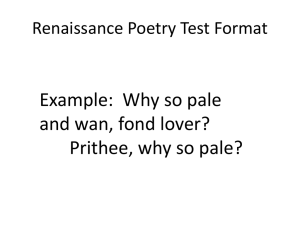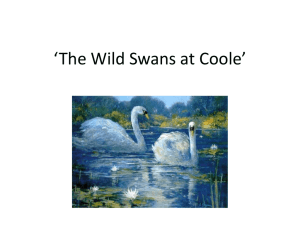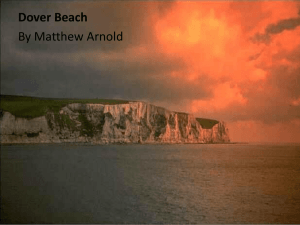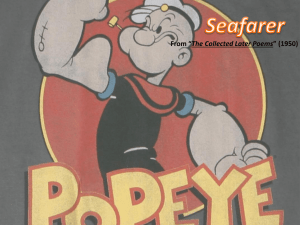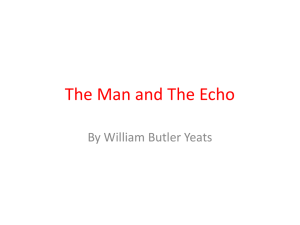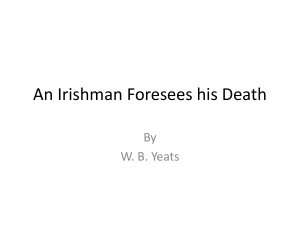Yeats' Wild Swans at Coole: Poem Analysis
advertisement
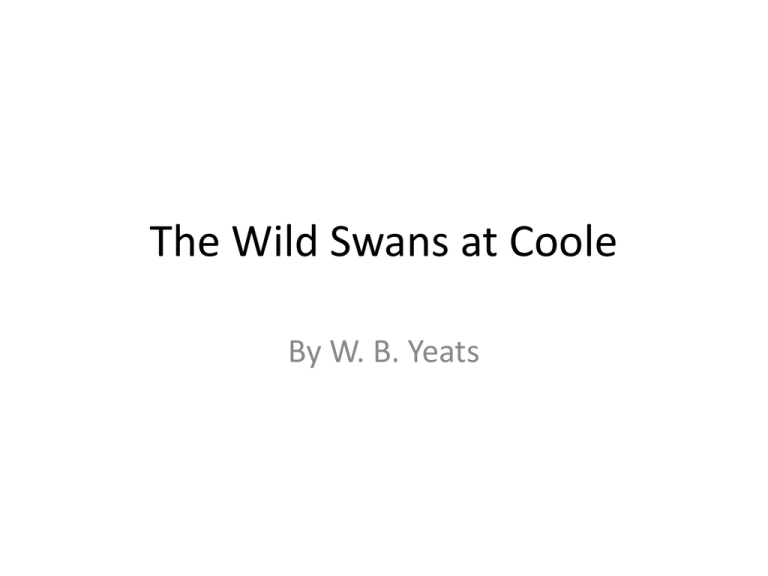
The Wild Swans at Coole By W. B. Yeats Coole Park Coole Park, in County Galway, was the home of Lady Augusta Gregory, a playwright and nationalist whom Yeats met in 1898. They grew to be close and Yeats spent his summers with her at Coole Park, a peaceful and beautiful place, popular with other writers. Yeats used to enjoy taking quiet walks in the woods within the large grounds. Read the Poem…. Can you “sum it up in a nutshell”? In The Wild Swans at Coole the poet-narrator has come to the end of another summer there. It is now autumn and he reflects on how quickly time passes, and how helpless we are to alter time's path. The swans - unlike him - appear unchanging. The passing of time and the change he sees in himself upsets him. Have a go at “Crunching the poem” • • • • • Read the poem through Reduce each line of the poem to one word Compare the words you have each chosen Can you spot any lexical fields? Which words are repeated and what is their significance? Use of Repetition…. • Make a list of the words that are repeated in the poem. • What is the significance of these words? • Because of the verse form chosen by Yeats, the repetition creates a regular and simple sound, helped by the use of full rhyme. The short lines slow us down and create an air of calm. • Use a venn diagram to collect the words used to describe: the swans, the setting and the poet. The Setting The Poet The Swans • How is pathetic fallacy used in the poem? Lyric Poem • A Lyric poem expresses the feelings of the poet, or his persona. • Explore what emotions Yeats is experiencing in this poem. • Pick out evidence from which we can infer his feelings. • How does the presentation of the swans contrast with the mood of the poem. • Considering Freud and pathetic fallacy, what do the swans appear to symbolise? Remember Freud?.... • A psychological reading of the poem might use the Freudian ideas of the Id, Ego and Superego. • Freud’s concept of the “fractured self” is best illustrated by concentric circles, with Id in the middle, encircled by Ego and Superego. • For Freud, the Id was the animalistic parts of our psyches, our primal desires and fears; • the Ego represents the rational aspects of our minds, our ability to hypothecate and understand the consequences of our actions; • the superego represents the internalised rules and customs of the culture into which we’re born. • For Freud, Id and Ego are often in conflict with each other. • What light do these concepts through on your understanding of the poem? Anything Familiar from The Celtic Twilight? 1. The geographical setting of the woodland (away from the modern world) 2. The temporal setting of the in-between time of twilight 3. The figure of the lonely poet lamenting loss 4. The magical, mysterious, symbolic creatures However, how is the treatment of these aspects different here than in his earlier poems? 1. 2. 3. 4. It is more grounded and less rhetorical. The meter is looser. It is more conversational and less hypnotic. Instead of a noble heroic character from a myth, we have Yeats himself.
